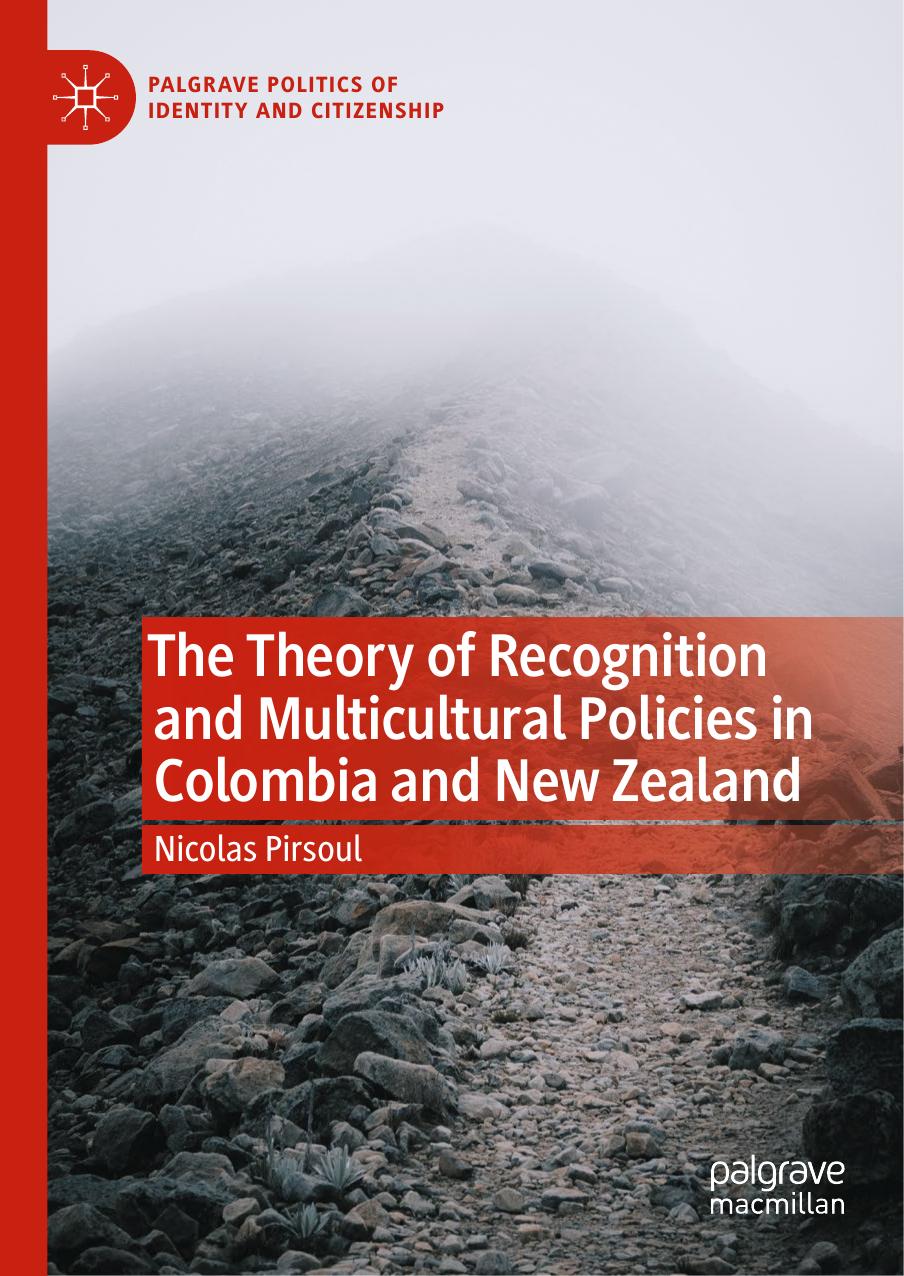The Theory of Recognition and Multicultural Policies in Colombia and New Zealand by Nicolas Pirsoul

Author:Nicolas Pirsoul
Language: eng
Format: epub, pdf
ISBN: 9783030594268
Publisher: Springer International Publishing
Welfare: Racism and Cultural Survival
Welfare policies for Afro-Colombian people are not as extensive as welfare policies for indigenous people who benefit, for example, from a differentiated health care system. Indeed, it is important to highlight the invisibility of Afro-Colombians in the health system. While Afro-Colombians are officially recognised as an âethnic groupâ, they do not benefit from the same differentiated health care advantages as indigenous people do. No Afro-Colombian EPS exist to this day and Afro-Colombian traditional medicine is not the object of state recognition. Law 691 of 2001 which is supposed to regulate the participation of ethnic groups in the general system of social security in Colombia does not apply to Afro-Colombian communities.96 Welfare policies for Afro-Colombians are reduced to programmes aimed at decreasing negative stereotypes towards blacks and decreasing racism.
The Colombian state vowed to struggle against racism towards Afro-Colombians by criminalising racism and promoting and valorising Afro-Colombian culture. However, as we have seen at the beginning of this chapter, despite the requirement for the state to tackle the issue of racial discrimination expressed in several articles of Law 70, racism remains a major problem for black people in Colombia who are victims of racism when looking for a job or in their daily social life.
Besides the issues of racial discrimination on the labour market, we could argue that the new multicultural framework of Colombia only represents the move from one type of racism to another. Indeed, the move from a previous institutional invisibility to a new form of restricted over-visibility for Afro-Colombians represents the perpetuation of a subtle form of racism as Afro-Colombian culture is reduced to folkloric representations of muscular and sexualised bodies, dances and gastronomic particularities.97 This stereotypisation goes hand in hand with a certain increase in the commodification and reification of Afro-Colombian culture. The commodification aspect is exemplified by the touristic appropriation of the Palenque of San Basilio resulting from investments from the Ministry of Commerce, Industry and Tourism.98 The reification aspect of Afro-Colombian culture can also be exemplified by the Palenque de San Basilio, a symbol of heroic black resistance against slavery, which creates a hyper-black identity excluding non-Palenqueros blacks on the Caribbean coast from the valorisation inherent to this identity.99 This symbolism could serve well a Fanonian approach to recognition but its folklorisation may in fact turn it into another form of pacification/normalisation by reducing it to a romanticised image of the past instead of the reality of an unjust present.
The implementation of ethno-education programmes for Afro-Colombian communities is supposed to reinforce black identity and self-esteem. These policies are equally problematic. Indeed, the state implements these programmes by placing ethno-educators in schools but does not make the necessary changes to the curriculum or teaching methodology for these policies to be relevant.100 The quota system for Afro-Colombians in Universities also poses problems since this practice of affirmative action is purely quantitative and not qualitative. It focuses on numbers instead of broader institutional reforms and better academic outcomes for Afro-Colombians.101
The attitude of the state towards Afro-Colombian communities is, therefore, ambiguous.
Download
The Theory of Recognition and Multicultural Policies in Colombia and New Zealand by Nicolas Pirsoul.pdf
This site does not store any files on its server. We only index and link to content provided by other sites. Please contact the content providers to delete copyright contents if any and email us, we'll remove relevant links or contents immediately.
| Elections & Political Process | Ideologies & Doctrines |
| International & World Politics | Political Science |
| Public Affairs & Policy | Specific Topics |
| United States |
The Secret History by Donna Tartt(19060)
The Social Justice Warrior Handbook by Lisa De Pasquale(12187)
Thirteen Reasons Why by Jay Asher(8895)
This Is How You Lose Her by Junot Diaz(6877)
Weapons of Math Destruction by Cathy O'Neil(6267)
Zero to One by Peter Thiel(5789)
Beartown by Fredrik Backman(5738)
The Myth of the Strong Leader by Archie Brown(5501)
The Fire Next Time by James Baldwin(5432)
How Democracies Die by Steven Levitsky & Daniel Ziblatt(5216)
Promise Me, Dad by Joe Biden(5146)
Stone's Rules by Roger Stone(5081)
A Higher Loyalty: Truth, Lies, and Leadership by James Comey(4955)
100 Deadly Skills by Clint Emerson(4921)
Rise and Kill First by Ronen Bergman(4780)
Secrecy World by Jake Bernstein(4743)
The David Icke Guide to the Global Conspiracy (and how to end it) by David Icke(4709)
The Farm by Tom Rob Smith(4502)
The Doomsday Machine by Daniel Ellsberg(4485)
